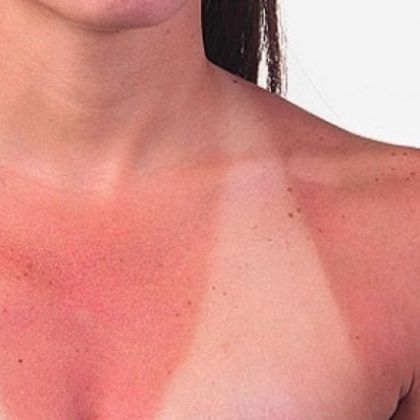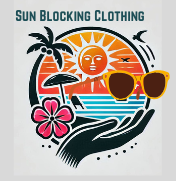Does Sunscreen Prevent Tanning? Or Just Slow It Down?

Does Sunscreen Prevent Tanning? Or Just Slow It Down? Have you wondered about this? With my life experiences, I have had sunburn after applying sunscreen.
Did I apply enough sunscreen? Probably not! I had no idea of how much sunscreen was needed for my safety. Did you?
As the fun in the sun continued through the day, did I reapply? Maybe a little but not good enough, nor often enough.
There are many who will put up with the pain that sunburn will cause to try for a tan using some of the original formulas of suntan lotion. (that is what we thought of back just a few years ago)
So many of the old favorites just will not protect you. That is just not what they were formulated to do.
How Did You Find Out About How Dangerous The Sun Is?
Some of the products we remember from past years are not to protect you, but supposedly help you get really dark. They were lotions that contained some stain to make your tan seem darker, at least for the day. They were simply setting you up for a sunburn.
Did we know? No, we didn’t. We bought what was there to buy. We thought we were doing good. You only put lotion on when you wanted to get tan.
The risks you take when you lie on the beach or any other location to get a tan? Those risks leave you putting yourself in line for skin cancer. As well as having wrinkles way before you should.
Do your friends pride themselves on their rosy checks and their very distinguishable tan lines after a long day of lying on the beach? They are operating on the hope, that the next color after the lobster-red stage is that prized and popular tan complexion.
So how do we get this tan that everybody nowadays yearns for? Can we avoid the risks of early aging and wrinkles in our faces? What about skin cancer? Check this link and see what you think.
Tanning starts with the pituitary gland, which releases a melanocyte-stimulating hormone (MSH) when exposed to the sun.
The Reason The Sun Causes Tan With Sunscreen
When your pituitary gland releases the hormone to start protecting your body from the sun, this is the first line of defense that your body is programmed to do.
MSH triggers special cells called melanocytes to produce more melanin. Melanin is your skin’s pigment (tan) that absorbs UV radiation. By absorbing the UV rays, the melanin protects your skin.
When the hormone stimulates the production of more melanin and darkens the skin, your body is able to create a shield. This is when you start to see the ‘tan.’
This shield will protect your skin the next time it is exposed to high amounts of UV radiation. Your body will replace the tan skin cell with a normal untanned cell as long as it can.
Sunscreen: Preventing, Or Just Slowing Tan Down
When a cell turns tan, it is already a dead cell and will be pushed to the outside of your skin. This is the reason tans have a short life.
Cells turn over pretty fast, and if the tan is light, it will disappear within a couple of weeks. If you tanned several days in a row your tan could last a month. Our cells are efficient in their protection of our bodies. This helps when you are sick or have a wound that needs to heal.
However, some lighter-skinned individuals, such as myself, are not as receptive to MSH, and so do not have high levels of melanin. Therefore, it is harder for us to tan.
We sunburn quicker instead of turning tan. As we do have less melanin in our skin, we have less protection against the sun’s UV radiation. We have a sunburn and other skin issues from being in the sun too long. Sometimes it only takes 15 minutes for me to start getting in trouble. This is why I have had so much skin cancer.
That also explains the wrinkles in my skin. Genetics are good for me, but even so, I have more than twice the number of wrinkles I should for my physical age.
Will Sunscreen Keep You From Tanning?
No, sunscreen will not keep you from tanning. It will slow down the tanning some.
Even a wide spectrum of 50 SPF will not keep your skin from tanning after a while. If you have applied enough product to your skin, you will tan more slowly, so it will take a bit longer. You can be out a bit longer with sunscreen than with bare skin.
Using both sunscreen and sun blocking clothing, you can enjoy even longer out and be safer.
However, exposing yourself to the sun even with clothing and sunscreen does come with some risk. The main one is an eventual sunburn. Then don’t discount early skin aging. Keeping yourself safe requires being aware, and paying attention to a sun-healthy lifestyle.
Know when to get in out of the sun. Stay hydrated. Take breaks from the sun. Rest in the shade. It isn’t rocket science. However, you will have to make some choices. ]
Will you make good ones?
Just A Reminder About Tanning
It is known that tanning beds are not a safer alternative to the natural sun.
Absolutely not!! Tanning beds have UV radiation. This radiation was named a carcinogen by the United States Department of Health and Human Services and WHO.
This means tanning beds have been categorized as “carcinogenic to humans” by the International Agency on Cancer.
Tanning beds lead to the same problems caused by the sun.
Why? Because they, too, emit UVA and UVB radiation. If you start using tanning beds before the age of 35, you are 75% more likely to get melanoma than people who never use tanning beds.
Another study found that women who go to tanning salons more than once a month are 55% more likely to develop melanoma.
Even with this knowledge, over one million people, mostly teen girls, and young women are still using tanning beds every day!
You must accept the awareness challenge. Share with your friends and family about the dangers of using tanning salons. Tanning beds are as near as you can get for skin cancer-inducing factories.
Remember, where there is a risk for skin cancer, there is a guarantee for early aging skin. Too much sun can and will destroy your skin. Make you old way before your time. Don’t be me and think it won’t happen. It will!
Wearing your sun hat and sunglasses is where you start. Add sunscreen and a long sleeve sun blocking shirt. Watch the time you are in the sun. Don’t think you won’t sunburn and wrinkle. You will.
The Sun And Skin Cancer
Basal cell carcinoma (BCC) is the first stage of skin cancer. This is on the outer layer of your skin, and after a while will get rough and irritated, causing you some minor discomfort.
This usually happens on your body that gets the most sun. Your ears, your forehead, nose, face, neck, top of your head. Then your hands. Your arms and legs.
These are the ones the doctor can usually handle easily, with cream medication or a small bit of surgery. If you ignore this kind of skin cancer, it won’t go away. Maybe it will temporarily scab over, but they remain there and will cause issues. Get some help with them early. It is cancer!
Squamous Cell Carcinoma (SCC) is a more serious stage of skin cancer. Just as with BCC, this is on the surface of your skin. This may have had a deeper sunburn, but some just start out with a deeper skin lesion. Often, these will need to be removed with surgery and will leave a scar.
If you ignore a BSS, it may develop into an SCC. These involve the deeper layers of your skin. They are more serious.
BCC and SCC, called non-melanomas, account for over 4 million new skin cancer diagnoses each year.
Luckily, these two types of cancer seldom metastasize when treated. However, there are so many more being treated each year that the medical profession is expressed concern for people not taking better care. We know better, but still, people are coming in with problems from too much sun.
The Most Deadly Skin Cancer, Melanoma
Your BCC and SCC levels of skin cancer are easy to see on your skin. You get treatment. When treated quickly there is usually a short healing time and all is forgotten.
Melanoma, on the other hand, is a much more dangerous and deadly type of skin cancer.
Melanoma is responsible for 10,000 of the 13,000 deaths caused by skin cancer each year.
Melanocytes in your body start uncontrolled cell division and form a tumor. This out-of-control cell division that forms a tumor is how melanoma begins.
Melanoma is different from BCC and SCC. These 2 kinds of skin cancer usually form in an area of the body where you were in the sun for a longer time.
Not so for melanoma. The tumor can result from just one really bad sunburn and exposure.
Additionally, melanoma is different from BCC and SCC because it is known to metastasize.
(Created by cells released by the primary tumor that have been transported to other organs or body parts, metastases – secondary cancer growths that spread through the body – are often viewed as its ‘deadly offspring’. At these secondary sites, the cells proliferate and grow into dangerous metastatic tumors)
These melanoma tumors will spread throughout the body, increasing the severity and harmful effects of skin cancer.
Numbers are slow to be reported and tallied for skin cancer. Back in 2015, it was estimated that there would be over 73,000 melanoma cases diagnosed.
Ultraviolet Radiation And Tan,Will Sunscreen Prevent Sunburn?
Just want to bring a few related facts about that tan you are wanting. Remember, the statement made earlier in this article about where there is the sun for tanning there is the sun for early aging. (Early aging translation means your skin getting wrinkles!)
So how exactly does ultraviolet radiation cause skin cancer?
UV radiation has high energy. Exposing yourself to this radiation causes damage to your skin cells’ chromosomes. This damage shows up in mutations in your DNA.
One of the common mutations is the alteration and breakdown of the chromosome that controls a specific tumor suppressor gene.
These tumor suppressor genes are important for regulating the cell cycle. When these kinds of genes such as TP53, lose their ability to stop a damaged tumor cell?
You may wind up with that cell going into overdrive. Why? Because it has lost the ability to control or suppress this kind of uncontrolled cell division.
As the cell and the cells it will produce going forward, now also contain the mutation. They will continue to divide uncontrollably. A mass of cells, or a tumor, can form.
Other common mutations in DNA caused by exposure to UV radiation are the translocation of chromosomes and the alteration of nucleotide base pairs in the promoter or the coding section of a gene.
These mutations can cause a normal proto-oncogene to become an overactive oncogene, and result in uncontrolled, much more rapid division of the cell.
However, it is important to note that one mutation is rarely the cause of cancer development.
Cancers usually form due to an accumulation of gene mutations, through what is known as the multistep progression of cancer.
DNA Damage
When there are mutations like mentioned above, remember, we are talking about just a few of the changes UV radiation has on your skin cells.
As you realize, even slight mutations can greatly alter the way your cells reproduce and work. They will have surprising effects on the results.
Due to such mutations in DNA, ultraviolet radiation from the sun accounts for 86% of all melanoma cases and 90% of SCC and BCC cases.
It is particularly that these cases can be prevented if people stay out of the sun and use sun protection.
Such statistics show that we, as a society, must increase awareness of the sun as a carcinogen. We must make our friends and family realize how dangerous this is for our health.
There are other risk factors, and they must be taken into account. We have to consider family history. How fair is your skin? Where do you live?
What medical treatments have your had? Organ transplants and exposure to chemicals can make an impact on your risk factor. It is clear that the rate of skin cancer can decrease if people become more aware of the dangers of the sun and act accordingly.
We must do our part by taking the proper precautions before going outside.
We Must Take Protection From The Sun Seriously
Just knowing the dangers of too much sun does little to protect us from the danger of too much sun.
Living with wrinkled old skin before we are old enough to have this happen is not fun. No one wants to look older than we are. Premature wrinkles are a sign something is wrong with your skin.
It is up to you to slow things down.
I am a high risk for sunburn in a very sunny part of the world. I was too slow to make changes. Were the changes difficult? No, but I did have to become aware. Now they are automatic, but I do have wrinkles. Maybe there won’t be any more from too much sun.
Sun Blocking Clothing To Protect You From Wrinkles And Sunburn
Now that I know how important covering my skin as protection from the sun is, I have been learning about UPF clothing. Knowing that my lifestyle is different from yours, I have my basics.
A wide-brim hat, wraparound sunglasses, and a long-sleeve loose-fitting shirt to keep the sun off my body. I also wear loose-fitting pants in the sun.
Then I make sure to have a broad-spectrum sunscreen of at least 30 every morning. If I plan to be outside, I usually start with a 50. There is just no need for me to get any more color from the sun.
Do you have a plan for protecting yourself from the sun?
Did you know that skin cancer has become the most common cancer in the United States?

Sami’s Take On Does Sunscreen Prevent Tanning, Or Just Slow It Down?
Learning to protect yourself will bring the kind of results that will make you enjoy your life through the ages.
Folks, we can’t live in the sun and keep our skin safe without some precautions. It doesn’t matter what your skin tone is.
Making some adjustments to schedules and getting out before 10 AM and After 4 PM will pay dividends in reduced wrinkling as well as less skin cancer.
Stay aware of sunscreen every morning. There are so many things you can do to take care of your skin. Start making better choices today.
Give your skin a chance to stay healthy, if you are going to tan do so slowly.
